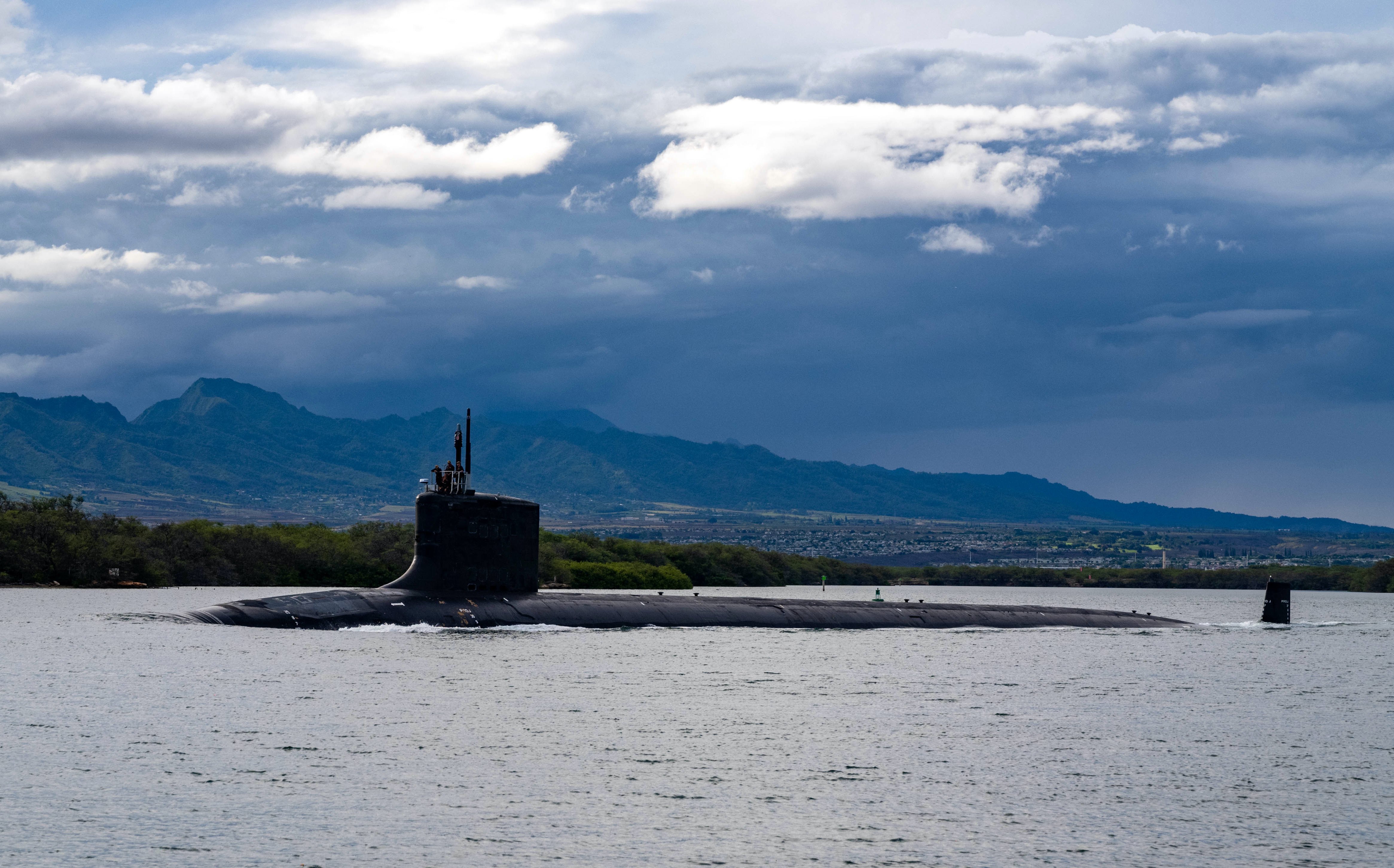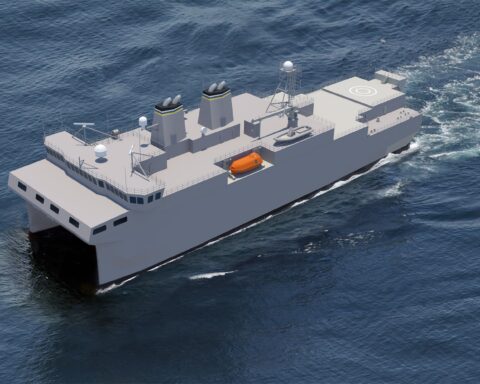The following is the Dec. 19 Final Action Memo by Coast Guard Commandant Adm. Paul Zukunft on the October 2015 sinking of the SS El Faro container ship during Hurricane Joaquin. The document was released publicly on Dec. 21.
From the document:
ACTION BY THE COMMANDANT
The record and the report of the Formal Investigation convened to investigate the subject casualty have been reviewed. The record and the report, including the findings of fact, analysis, conclusions, and recommendations are approved subject to the following comments and the enclosure.
COMMENTS ON THE REPORT
l. The loss of the EL FARO and all 33 persons aboard was a tragic and preventable accident. offer my sincere condolences to the families and friends of the mariners whose lives were lost. The Coast Guard will take appropriate action on all that we have learned from this investigation.
2. I thank the members of the Marine Board of Investigation (MBI) for their exhaustive work and independent recommendations. The MBI conducted nearly their entire investigation in public view via live video, audio and online forums, providing an unprecedented degree of transparency to their proceedings. As a result, some vessel owners and operators were able to apply lessons learned in near real time, enhancing the safety of their own operations.
3. While many factors contributed to this marine casualty, by far the most prominent was the Master’s decision to sail the ship in close proximity to a Category 3 hurricane. There were multiple opportunities to take alternate, safer routes as the storm approached. There was adequate information available regarding the threat posed by hurricane Joaquin, despite the unusually unpredictable nature of the storm’s path and intensity. There were warnings and recommendations from the mates on successive watches to alter course to avoid the storm, but they were not heeded. The combination of these actions and events placed the EL FARO in harm’s way near the eye of the storm, and subjected her to wind and sea conditions that prudent mariners avoid. In the case of the EL FARO, those conditions led to a chain of events, the effects of which were irreversible.
4. The ROI notes numerous failures on the part of TOTE Services, Inc. (TSI) to properly fulfill its obligations under the International Safety Management (ISM) Code. These include substandard materiel conditions aboard EL FARO’s sistership, failure to provide basic safety training to the onboard riding gang, failure to conduct proper lifeboat drills, among others. Most relevant to this casualty, however, was the company’s failure to provide the necessary shoreside support for the master to perform his duties safely. The overriding authority of the master does not absolve TSI of their obligation under the ISM Code to provide such support. While TSI’s Operation Manual – Vessel (OMV) did address heavy weather, it placed the entire responsibility for weather planning and preparation on the master, which is inconsistent with fundamental stated objectives of the ISM Code. According to TSl’s former Designated Person Ashore (DPA), the company deliberately abandoned the practice of assisting masters with heavy weather voyage planning, storm system monitoring, and avoidance. Understanding that the company routinely provided liner service in an area prone to hurricanes during hurricane season, the decision to abandon such a crucial support system is irresponsible and inexcusable.
5. The Coast Guard entrusts classification societies to carry out an extensive list of delegated functions that impact the safety of U.S. ships. The Coast Guard relies most heavily on the functions performed by the American Bureau of Shipping (ABS), an organization that provides vessel classification services for 92% of the U.S. deep draft fleet. Throughout the proceedings of the MBI, it was revealed that ABS failed to uncover or otherwise resolve longstanding deficiencies that adversely affect the safety and seaworthiness of vessels on multiple occasions. This casualty is a call to action. ABS can and must do better.
6. This casualty did not occur due to a lack of standards or requirements; rather it was the result of poor seamanship compounded by failure of the safety framework that should have triggered a series of corrective actions that likely would have prevented it. The Coast Guard, after the vessel owner and ABS, was the final element of the safety framework, responsible for ensuring that minimum standards were met. A competent and functional national administration is the cornerstone of maritime safety. As the lead agency of the U.S. Flag Administration, the Coast Guard is ultimately responsible to monitor the performance of third parties that perform delegated functions and also to guarantee the effectiveness of vessel inspections and surveys. Yet the Coast Guard failed to adequately oversee the third party in this case, and the investigation reveals that the Coast Guard has not sustained the proficiency and policy framework to do so in general. The Coast Guard is fully committed to rectifying the shortcomings that led to these failures.
7. As the pace and complexity of maritime commerce and operations have increased, third parties have enabled the regulatory regime to evolve and keep up with increasing demand. Third party programs, such as the Alternate Compliance Program (ACP), have transitioned from an option to a necessity upon which both the Coast Guard and the maritime industry rely. Responding to the recommendations on the 1983 capsizing and sinking of the S.S. MARINE ELECTRIC, the Commandant dissented with the MBI and concluded that the poor quality of surveys aboard that vessel could not be justifiably expanded to condemn the entire system of third-party delegations. The same is true in this case. The Coast Guard relies far more heavily on third parties today than at the time of the MARINE ELECTRIC casualty. Now, more than ever, the system requires reform. The Coast Guard must, and will, establish a risk-based and enduring policy framework that is simpler to execute and enables more robust oversight of delegated functions. Further, recognizing that the ACP is only one program among many that rely on delegation of technical functions and services to third parties, it is imperative that the lessons learned be applied universally to all programs that rely on a similar structure.
8. Parties in Interest and the families of the crew of the EL FARO were invited to submit comments to the Coast Guard on the MB I’s Report of Investigation for my consideration. The results of my review and consideration of those comments regarding the findings of fact, analysis and conclusions is attached as an enclosure.
9. The MBI could not determine whether or not the sea suction piping of the emergency fire pump installed in cargo hold #3 was damaged by cargo that may have broken free in the hold, potentially contributing to flooding. Because of the potential for such damage, however, it is appropriate to ensure that vital systems and through hull penetrations fitted in cargo holds be protected from physical damage. The Coast Guard will consider requiring such protection in future regulatory initiatives.
10. This is a call to action for the entire maritime community. TOTE, ABS, and the Coast Guard must learn and move with a sense of urgency. This tragic story points to the need for a strong and enduring commitment at all elements of the safety framework. First and foremost, the company must commit to safety culture by embracing their responsibilities under the ISM Code. Secondly, Recognized Organizations (ROs) must fully and effectively perform their duties and responsibilities. Finally, the Coast Guard must, and will, provide the final safety net with sustainable policy, oversight, and accountability.





